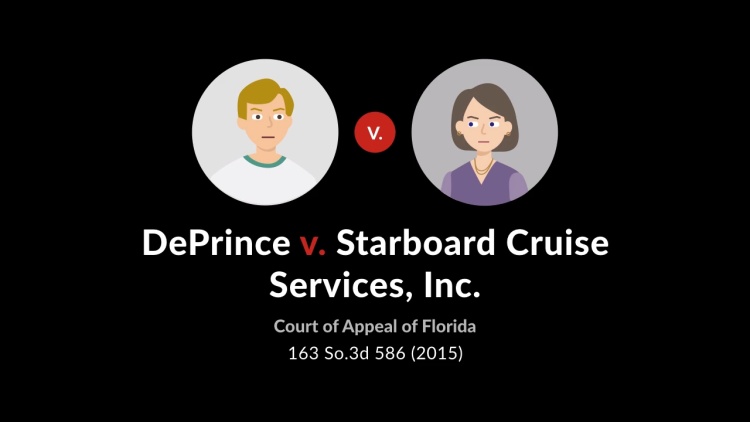DePrince v. Starboard Cruise Services, Inc.
Court of Appeal of Florida
163 So.3d 586 (2015)
- Written by Craig Conway, LLM
Facts
During a cruise, Thomas DePrince (plaintiff) visited an onboard jewelry shop owned and operated by Starboard Cruise Services, Inc. (Starboard) (defendant). DePrince expressed interest in purchasing a 15- to 20-carat loose diamond. The shop’s manager contacted an onshore supplier, which responded via email that two diamonds were available, one 20.64-carat diamond for $235,000 and one 20.73-carat diamond for $245,000. DePrince consulted with an expert gemologist friend onboard the ship, who indicated that both diamonds had unique characteristics and that each diamond had been assigned a specific laser number. DePrince purchased the 20.64-carat diamond the following day, paid the amount required, and signed a one-page sales agreement. The parties agreed to have the diamond shipped to the Gemological Institute of America’s laboratory in New York to verify the diamond’s authenticity. Starboard later learned that the price quoted to DePrince was the per-carat price for the diamond rather than the total price, which was $4,850,400. Starboard informed DePrince of the error and reversed the charges on DePrince’s credit card to refund all monies paid. DePrince filed suit against Starboard, alleging claims for breach of contract, specific performance, and conversion. Starboard moved for summary judgment based on unilateral mistake. The trial court granted Starboard’s motion, and DePrince appealed.
Rule of Law
Issue
Holding and Reasoning (Rothenberg, J.)
What to do next…
Here's why 911,000 law students have relied on our case briefs:
- Written by law professors and practitioners, not other law students. 47,100 briefs, keyed to 997 casebooks. Top-notch customer support.
- The right amount of information, includes the facts, issues, rule of law, holding and reasoning, and any concurrences and dissents.
- Access in your classes, works on your mobile and tablet. Massive library of related video lessons and high quality multiple-choice questions.
- Easy to use, uniform format for every case brief. Written in plain English, not in legalese. Our briefs summarize and simplify; they don’t just repeat the court’s language.





